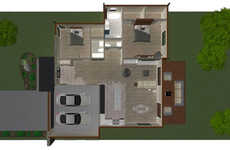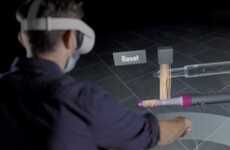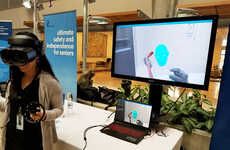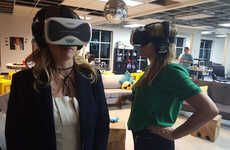
The Lowes Holoroom How To is an Instructive VR Training Clinic
Alyson Wyers — March 28, 2017 — Art & Design
References: lowes & springwise
This virtual reality-powered training clinic helps nervous first-time DIY project undertakers to practice their home improvement skills. From retailer Lowes, the Holoroom How To is a VR training course.
Although VR technology has been used in the design and home space before, this is a much more immersive and interactive experience for homeowners. The training clinic teaches building and decorating skills with simulations and step-by-step instructions for different projects, such as shower tiling. Fittingly, it also tells you what materials you will need to buy. Haptic feedback via headsets and controls provide a hands-on approach to learning. Lowes also plans on using their findings from their three locations (two Canadian and one in Massachusetts) to better train staff on customer needs.
Although VR technology has been used in the design and home space before, this is a much more immersive and interactive experience for homeowners. The training clinic teaches building and decorating skills with simulations and step-by-step instructions for different projects, such as shower tiling. Fittingly, it also tells you what materials you will need to buy. Haptic feedback via headsets and controls provide a hands-on approach to learning. Lowes also plans on using their findings from their three locations (two Canadian and one in Massachusetts) to better train staff on customer needs.
Trend Themes
1. Immersion VR Training - Developing virtual reality training programs that provide an immersive and interactive experience for learners.
2. Hands-on Learning - Integrating haptic feedback and interactive controls in virtual reality training to create a realistic, hands-on approach to learning.
3. Retailer VR Training - Exploring the use of virtual reality training in the retail industry to enhance customer service and staff training.
Industry Implications
1. Home Improvement - Leveraging virtual reality technology to offer DIY homeowners an immersive training experience for building and decorating skills.
2. Education - Integrating virtual reality training courses into educational institutions to provide students with hands-on learning experiences in various subjects and fields.
3. Customer Service - Adopting virtual reality training programs in the retail industry to better equip staff with the skills and knowledge needed to meet customer needs.
5.1
Score
Popularity
Activity
Freshness























